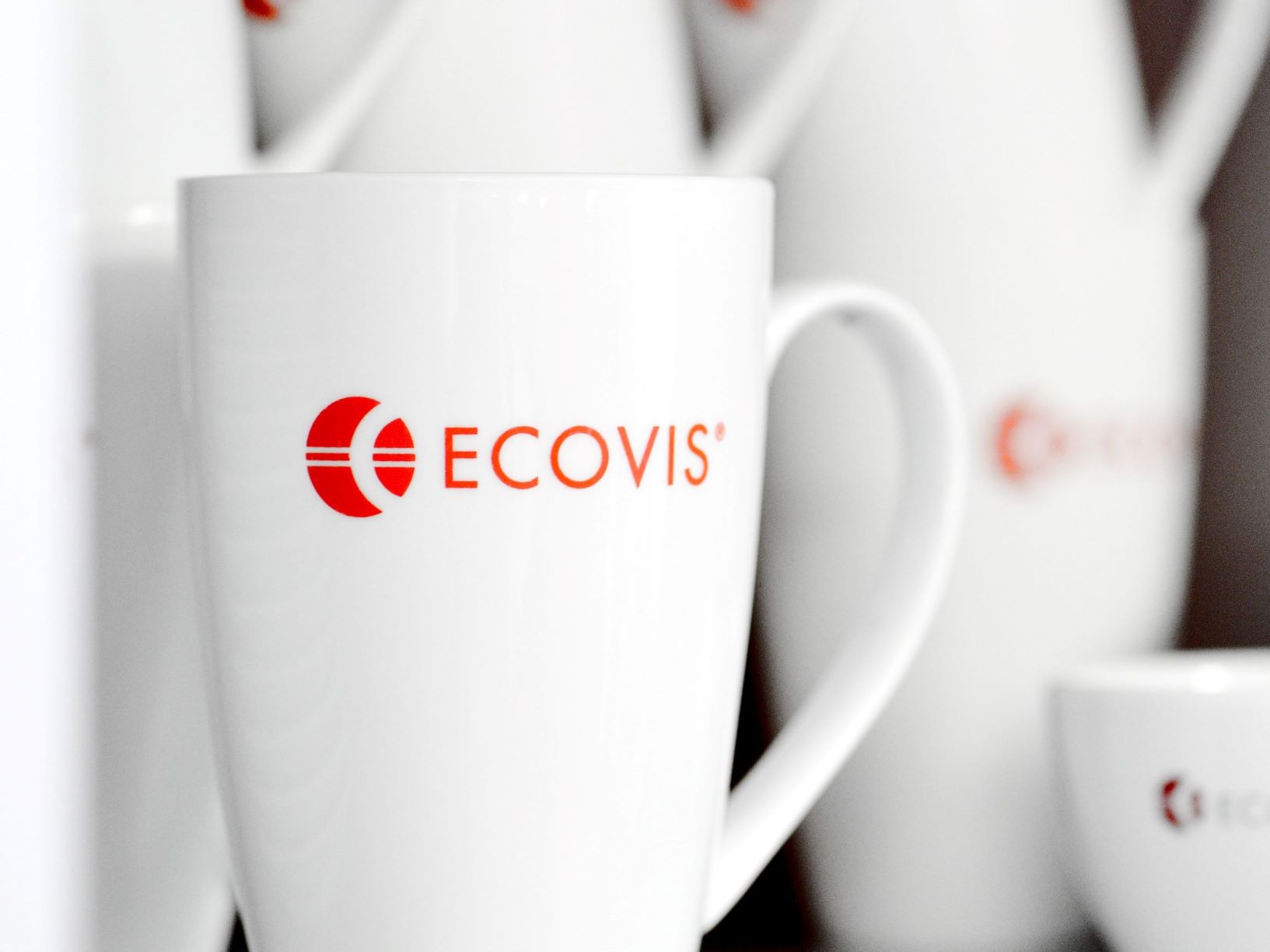The Most Interesting News from the Czech Case Law in 2019
There are not many legislative news, which would be of general interest to all entrepreneurs, at the end of 2019. Changes for entrepreneurs can introduce not only the new Czech laws, but also the Czech courts and administrative authorities. The most important news brought by the case law of Czech courts and some administrative authorities in the course of this year can be found in this article.
The validity of the sale of number of things, where only one aggregate purchase price is negotiated
The Supreme Court ruled in the decision made on January 16, 2019, File No. 20 Cdo 4452/2018, that the purchase contract concluded pursuant to Section 2079 et seq. of the Czech Civil Code is not an indeterminate and unintelligible legal act, just because the object of such act is number of movable things, while only one aggregate purchase price is negotiated. While the basic principle of the new Czech Civil Code is, that all legal act should be, in principle, considered valid, it applies, that “negotiating the aggregate purchase price for the items specified in the purchase contract may render the whole purchase contract invalid, but only in cases, when the ownership right to some of the items listed in such purchase contract could not be transferred by such contract; only in those cases, it is not possible to find out the purchase price for the other things, for which the ownership right was transferred by the purchase contract (cf. the decision of the Supreme Court made on September 12, 2002, File No. 22 Cdo 2127/2000). In other cases, there is no reason to disregard the obvious will of the contracting parties to transfer ownership of the listed things at a particular aggregate price, since there is no doubt whatsoever what and for which price should be transferred.“
The requirement of the due manager's care also applies to the proposals of the General Meeting's decision made by the statutory body
In August 2019, the Czech Supreme Court's decision made on June 27, 2018, File No. 29 Cdo 3325/2016, was announced in the Czech Collection of Case Law, where the Supreme Court interpreted the extent of the liability of the statutory body members for damage incurred to the company, even if they acted in accordance with the instruction given by the General Meeting. "If the Statutory body of the company proposes to the General Meeting to adopt a resolution that shall be subsequently followed by the statutory body (that will be "implemented"), its members are obliged to act in accordance with the due maager’s care (see above) already when they summon the General Meeting; formulate a draft of the resolution to be adopted by the General Meeting, as well as when providing all relevant information to the shareholders, so that the shareholders can make a decision at the General Meeting with sufficient knowledge of the matter and bearing in mind the advantages, disadvantages and risks associated with the proposed resolution of the General Meeting. If they fail to do so, and propose to the General Meeting a resolution for which they are aware, or must have been aware (if they acted with due manager’s care) that it is disadvantageous for the company (i.e. it is not in the best interest of the company) and that it may cause harm to the company. "It is established from the constant case law of the Czech Supreme Court, that the members of the Statutory body are responsible for the proper performance (in accordance with the due manager’s care) of their functions, not for the result of their actions. If a member of the Statutory body acts with the due manager’s care, such member is not obliged to compensate the company for any damage, even if such damage would result from the Statutory body member’s conduct. In order to meet the requirement of due manager’s care, a member of the Statutory body is required to act (among other things) with the necessary knowledge and therefore, to make informed decisions, i.e. to use reasonably available (factual and legal) information sources and based on those sources carefully consider all possible advantages and disadvantages (recognizable risks) of existing business decision options.” “Part of the due manager’s care is the duty to be loyal, i.e. the duty of a Statutory body member to give preference to the interests of the company over his own, or over any interests of third parties, including the interests of those shareholders, who voted him into the function in the Statutory body by the weight of their votes.”
The possibility to use a secret audio or video recording of an employee as an evidence in a Labour dispute
To prove a breach of duty caused by an employee may be complicated, and eventually, without the secretly made recordings even impossible. The Czech Supreme Court in its decision made on August 14, 2018, File No. 21 Cdo 1267/2018, dealt with the case where the employer secretly recorded an employee, who actually threatened such employer to damage his interests, unless the employee would be provided with another lucrative position within the employer. The Czech Supreme Court evaluated the validity of immediate termination of employment contract with regards to the intensity of breach of employee's duties for such termination, and also evaluated the use of secret recordings as an evidence in the court proceeding.
The Czech Supreme Court accepted, that “in the employer-employee relationships, a mutual trust, employee reliability and honesty resulting from Section 301 letter (d) of the Czech Labour Act is always necessary while at the same time, it bounds the employee not to cause any damage to the employer by his behaviour, whether material or moral, in connection with the employment relationship. Any attack on the employer's property, whether direct (e.g. theft, damage, misuse, etc.) or indirect (e.g. by attempt to withdraw part of the employer's property without adequate consideration) can be assessed, a relatively vague hypothesis of Section 55 letter b) of Czech Labour Act, as such significant circumstance that, as a rule, it is in itself sufficient to conclude that there is a breach of an employee's obligation in particularly gross manner under the legislation relating to the work performed by such employee.”
In relation to the secret recordings which were made in this particular case, the Czech Supreme Court ruled that they cannot be used (the facts were proved by witness statements and therefore in was not necessary to use the secret recordings as evidence). At the same time, the Czech Supreme Court ruled a general principle, when the secretly made recordings could be used as the evidence. “An audio or visual record of a person or of his or her personal expressions, made by a private individual without the knowledge of the recorded person, may only be used as the evidence in the civil proceeding only in case, where such record shall prove a fact which cannot be proved otherwise (by such means of evidence, which does not interfere with the personality rights of the recorded person) and where other circumstances of the case lead to the conclusion, that the right for the personal rights to be protected cannot be prioritized over the right to a fair trial of a person, who shall benefit from using the secret record of other person. ”
Therefore, in previous decisions, the Czech Supreme Court (under legislation effective before January 1, 2014) concluded that if a party of a civil proceeding proposes evidence to prove its claims, that was acquired or provided by such party in violation of generally binding legal regulations, and whose acquisition or measure violated the rights of another natural or legal person, the court shall not accept such evidence as the evidence inadmissible. Although the new Czech Civil Code preserves privacy as part of an absolute personal rights, the extent of its possible restriction is broader in the current legislation, as it allows to acquire or use a portrait, document of a personal nature for the official purpose, it also allows to acquire or use a portrait, document of a personal nature or a phonogram also with regard to the exercise and protection of the other person’s subjective private rights, which takes place, as a rule, in proceedings before a public authority and under public law. However, this possible restriction have to be interpreted very restrictively, as it is an exception to the general right on protection of each person’s personality, and therefore the option to use portraits and audio or visual recordings of a person in proceedings before any public authority (and create such portraits and recordings for this purpose) cannot be permitted in all cases (without further conditions) only given that it is in favour of the legal protection of any rights and interests of another person. The main legal condition, by which the person is allowed use of a portrait or a audio/video recording is, that such portrait or recording cannot be used in a disproportionate manner, contrary to the legitimate interests of a concerned person.
“The basic criterion to decide, whether or not is possible to use audio or video recordings of a person or his/her expressions of a personal nature, which were made by a private person without the knowledge of the recorded person, as the evidence in the civil proceeding is the evaluation of the conflicting protected private rights and interests and deciding, which of these rights and interests prevails in the particular case. However, a conflict of interest in the protection of the personality of the person, whose portrait or expression is captured without his or her consent with the interest in the protection of the person who intercepts (and then uses) the portrait or expression cannot be solved in general. Each decision on the extent to which a particular interest is prevalent in a particular case must be left to the discretion of the courts in each individual case. In addition to the circumstances in which a recording was made, the importance of the legally protected or recognized interest which is the subject of the proceeding, and the other possibilities available to the person using the recording to prove such information in another way, than at the cost of violating the privacy of another person will be decisive (cf. Czech Constitutional Court decision made on December 9, 2014, File No. II. ÚS 1774/14). Considering that it is an exceptional means, it can be used as evidence in the civil proceeding only where it shall prove a fact, which cannot be proved otherwise (by evidence that does not interfere with the absolute personality rights of the person concerned), and where other circumstances of the case lead to the conclusion that the right to the protection of the person's personality rights over the right to a fair trial (cf. Article 36 (1) of the Charter of Fundamental Rights and Freedoms) of a person, who shall benefit from using the secret record of other person. ”
A change in the case law on the moment, to which a contractual fine is moderated, and on the impossibility of one-sided setoff
In decision made on April 11, 2018, File No. 31 Cdo 927/2016, published in this year's Collection of Court Decisions and Opinions, the Czech Supreme Court diverged from the so far constant legal opinion, expressed in nearly dozen decisions and ruled, that the contractual fine is moderated ex-tunc to the moment when the contractual fine was agreed. Therefore, it is impossible to use a disproportionately high contractual fine for a setoff of mutual claims, and thus prevent the courts from evaluation of the proportionality of agreed contractual fine, which has been, so far, an acceptable practice by the Czech courts.
The Grand Chamber of the Czech Supreme Court diverged from the previous decisions, respectively from the Czech Supreme Court decision made on August 28, 2006, File No. 32 Odo 1007/2006, and all subsequent decisions which followed. The Czech Supreme Court came to the completely new conclusion, that “the moderation of the contractual fine is not effective ex-nunc, but ex-tunc to the moment when the contractual fine was agreed. Where the contractual fine is disproportionately high, the one-sided setoff resulting in the extinction of the claim arising out of the contractual fine is not possible in the extent of its disproportionality, as well as setoff resulting in the extinction f to claim against which such contractual fine is setoff. ”
Applicability of the Czech Labour Code on the Executives’ Contracts in Statutory Bodies and Concurrence of Functions
Concurrence of functions is a long-term topic within the Czech case-law and also in practice. We wrote about this problem already in our article Concurrence of executive position and employment under Czech law.
In decision of the Czech Supreme Court made on April11, 2018, File No. 31 Cdo 4831/2017, the court for the first time expressly allowed, that the member of the statutory body of the company and the company might, in the executive’s contract on performance of function, agree differently and derogate the general rule expressed in Section 66 para. 2 of the Czech Commercial Code (under this Section, the relationship between the company and its executive is governed appropriately by the Czech regulation of the mandate contract). Therefore, the executive and the company can in the executives contract agree, that their relationship shall be governed under the Labour Code regime. “Such arrangement (in relation to the exercise of competences of the statutory body) does not render the relationship between the company and the executive a labour-law relationship; it shall continue to be a business-law relationship governed by the Commercial Code and - as a result of a contractual agreement - by the (applicable) provisions of the Labour Code in the extent, that is not against a mandatory legal provisions governing the regulating (in particular) the position of a member of the statutory body of a business corporation and its relationship with the business corporation. ” Thus, the executive’s contract subordinated to the Czech Labour Code was not considered by the courts to be null or unlawful, given such contract must be interpreted in a way that maintain its validity, while excluding the application of a number of provisions of the Labour Code, which are against the rules applicable to the members of the statutory body of Czech business corporations.
In the Czech Supreme Court's opinion, the function of a member of the statutory body is no longer dependent work within the meaning of Section 2 para. 1 of the Czech Labour Code, even if the mutual relationship is, by agreement of both parties, subordinated to the Czech Labour Code. The above conclusions apply also in cases, where a member of a statutory body and a business corporation conclude, in addition to the executive’s contract, a concurrent “management” contract to act in specific areas falling into the competence of the statutory body (usually for business management), and in such management contract, a regime of the Czech Labour Code is agreed. In such cases, the management contract shall be regarded as an (kind of) amendment to the executive’s contract regulating the relationship between a member of a statutory body and a business corporation within the performance of certain activities within the competence of the statutory body. The management contract is not invalid only because it subordinated to the Czech Labour Code by agreement of the parties, but the same requirements must be met (required form, content and also the requirement for its approval by the competent body of the business corporation), as the executive’s contract itself.
An agreement contained in the executive’s contract (or in a concurrent “management” contract) that the relationship between a member of a statutory body and a business corporation (for the performance of a function in a statutory body) is governed by the Czech Labour Code, it is not possible to divert in particular from the rules governing the establishment and termination of the function of a member of the statutory body, the prerequisites for performing such function and the consequences of their absence, the remuneration of statutory bodies members, the form of the executive’s contract; the obligation of approval of such contract and the obligation to perform the function with the due manager’s care. Those rules must be, in principle, regarded as mandatory rules in view of their purpose and meaning.
Therefore, a function of a member of the statutory body of a business corporation is established at the moment of effectiveness of the decision of the General Meeting (or Supervisory Board) on the election of such member (if such member fulfils all the statutory requirements), regardless of the fact that the executive contract with the company is governed by the Czech Labour Code (under which such relationship shall be established by the date specified in Section 36 of the Czech Labour Code). If the elected member does not fulfil some of the requirements for the performance of the function of a member of the statutory body, the elected member does not become a member of the statutory body of the company, regardless of the fact that the concluded executive contract (or a concurrent “management” contract) should be governed by the Czech Labour Code.
Also, the termination of the function cannot be governed by the Czech Labour Code, and the competent body of the company can recall a member of the statutory body from the function (and this function ceases to exist) even without a specific reason (in this respect, the protection provided to the employees in the form of termination notice and termination period cannot be applied).
Likewise, the obligation of a due manager’s care and the obligation to maintain confidentiality on the information whose disclosure to third parties could cause damage to the company, including the consequences of their breach, binds a member of the statutory body regardless of whether the executive contract (or concurrent “management” contract) is governed by the Czech Labour Code. Even in such a case, the duty of a member of the statutory body to compensate for damage caused to the company by the performance of his/her function is not limited by four and a half times of such member’s average monthly remuneration (cf. Section 257 para. 2 of the Czech Labour Code).
The Czech Supreme Administrative Court also dealt with the validity of the employment contract concluded between the company and the member of its statutory body in decision made on January 17, 2019, File No. 10 Ads 284 / 2017-42, regarding a conflict of interest within the meaning of Section 22 para. 2 of the Czech Civil Code effective until the end of 2013. According to this decision, the employment contracts concluded by the same person on behalf of the employer (the company) and on behalf of the employee (the statutory body member) are not automatically null and void because of a conflict of interest within the meaning of Section 22 para. 2 of the Czech Civil Code effective until the end of 2013. The relevant administrative authority has to evaluate, in each individual case, whether there is a conflict of interest between a company as an employer and its statutory body member as an employee. These conclusions should apply also under the new Czech Civil Code (effective from the beginning of 2014), in particular under the Section 437 thereof.
Limits on the obligation to perform the function of a member of the Statutory body of a joint-stock company (or a executive director of a limited liability company) with due loyalty
In the decision made on April 25, 2019, File No. 27 Cdo 2695/2018 the Czech Supreme Court once again reminded, in accordance with the existing case-law, that the due manager’s care also includes the obligation of due loyalty, i.e. the obligation of a statutory body members to give priority to the interests of the company over their own, or over any interests of third parties, including the interests of those shareholders, who voted him into the function in the statutory body by the weight of their votes. This obligation is binding to the statutory body members, so to speak, "24 hours a day, 7 days a week". Therefore, a member of the statutory body should not, without proper reason, do anything which is manifestly contrary to the interests of the company, even if such member is not currently acting as a member of the statutory body.
“That does not mean that a member of the statutory body cannot legitimately defend any other interests than those of the company; for example, when acting in his/her own affairs. In such cases, the member of the statutory body in principle can (and usually will) defend his or her own interests. In situations, where such personal interests’ conflict with the interests of the company (e.g. when concluding contracts with the company), the legal regulation of a conflict of interest applies, which states, as a general rule (unless otherwise provided by law), that a member of the statutory body cannot act on behalf of the company. ” In this particular case, the member of the statutory body could (generally speaking) defend his own interests of the landlord (including the interest in receiving the due rent payments), but he was not entitled – with regard to the conflict of interest between him and the company – act on behalf of the company in the matters of the lease. “If such member of the statutory body took over (based on his own decision) the notice for payment of the rent on behalf of the company, as well as the subsequent withdrawal from the lease agreement (unless he handed such documents over to the other member of the statutory body), he acted on behalf of the company in a matter in which he was not entitled to act in. Consequently, neither the notice for payment of the rent nor the withdrawal from the lease agreement was effectively delivered to the company. As a result, this member of the statutory body breached his duties, and therefore he was obliged to compensate the company for the caused damage.
Limits on the obligation to perform the function of a member of the Statutory body of a joint-stock company (or a executive director of a limited liability company) with due loyalty
Given the wide range of doubts and unclear facts surrounding the application of General Data Protection Regulation (“GDPR”) and the new Czech Personal Data Processing Act, the Office for Personal Data Protection (“UOOU”) started to considerably increase the general public awareness of its decision-making processes and its control activities. In addition to the description of all the inspections carried out in the first half of 2019, a new list of selected second instance decisions made by the Chairman of the UOOU can be now found on the UOOU website.
For example, the UOOU carried out inspection based on a complaint filed with the Dutch Supervisory Authority concerning the processing of personal data of the users of both free and paid versions of the antivirus software. As part of this inspection, the UOOU concluded, that the inspected subject is in the position of the antivirus software user’s personal data administrator, because it has information that might, overall, lead to the identification of the specific user, based on which the specific user can be identified and therefore by providing the antivirus software service, such data of the users are collected, which are the personal data in the sense of GDPR.
The UOOU also confirmed, that the control of access to the business premises through a camera system located at the entrance to the business premises, is in compliance with GDPR and the Czech Personal Data Processing Act. The UOOU concluded that the identification of persons entering the business premises through a CCTV system in the on-line mode without sound (without a recording system), is not a processing of personal data, and thus the operator of such system is not an administrator of the personal data in the sense of the GDPR.
The UOOU also stressed out the obligation to respond to a request for withdrawal of consent with the processing of personal data, and the obligation to dealt with such request immediately. One of the major on-line retailers did not process a request to delete personal information (a copy of the personal identification card and a photograph), that was processed with the consent of the customer, which was subsequently revoked. Even though it was supposed to be an retailer’s employee misconduct, the UOOU stated, that the withdrawal of consent have to be as simple, as it was to grant such consent, and imposed a fine of CZK 15,000 in this specific case.
The UOOU also carried out a control on the fulfilment of obligations in the processing of personal data of former employees, including former employees of the company, focusing on the transfer and use of electronic communication. Based on a complaint from a former employee, the UOOU evaluated the employer's procedure which, upon the termination of employment, does not delete the email address and mailbox of the employee and continues to access employee’s mailbox, and by this conduct, the employer was supposed to violate former employees' privacy. The UOOU did not find this procedure to be defective, especially with regard to the fact that the employer regulated the use of the e-mail address and the mailbox by internal regulations, had security measures related to the integrity of the e-mail server and of the individual mailboxes, and any potential incidents are investigated and documented. In the event of termination of employment, the e-mail address is kept for three months, the access of the former employee is revoked and an automatic reply is set up to the sender of the message containing the cancellation of the account and new contact information.
For more information, contact us at:
JUDr. Mojmír Ježek, Ph.D.
ECOVIS ježek, advokátní kancelář s.r.o.
Betlémské nám. 6
110 00 Praha 1
e-mail: mojmir.jezek@ecovislegal.cz
www.ecovislegal.cz
About ECOVIS ježek advokátní kancelář s.r.o.
The Czech law office in Prague ECOVIS ježek practices mainly in the area of Czech commercial law, Czech real estate law, representation at Czech courts, administrative bodies and arbitration courts, as well as Czech finance and banking law, and provides full-fledged advice in all areas, making it a suitable alternative for clients of international law offices. The international dimension of the Czech legal services provided is ensured through past experience and through co-operation with leading legal offices in most European countries, the US, and other jurisdictions. The Czech lawyers of the ECOVIS ježek team have many years of experience from leading international law offices and tax companies, in providing legal advice to multinational corporations, large Czech companies, but also to medium-sized companies and individual clients. For more information, go to www.ecovislegal.cz/en.
The information contained on this website is a legal advertisement. Do not consider anything on this website as legal advice and nothing on this website is an advocate-client relationship. Before discussing anything about what you read on these pages, arrange a legal consultation with us. Past results are not a guarantee of future results, and previous results do not indicate or predict future results. Each case is different and must be judged according to its own circumstances.














